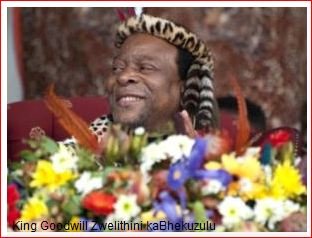Pretoria 29 July 2010
Minister Sicelo Shiceka,
Chairperson of the National House of Traditional Leaders,
Ladies and gentlemen of the media,
The Constitution of the Republic of South Africa, 1996, provides for the recognition of the institution of traditional leadership, its status and role according to customary law, subject to democratic principles.
Over the years, the institution of traditional leadership has been undermined and eroded.
This has been done in particular through the Black Administration Act and other related apartheid legislation, which created amongst others, the Bantustans.
The apartheid regime created its own traditional leadership at the expense of authentic traditional leadership, in some communities.
In order to restore the dignity of traditional leadership, remove historical tensions and locate its role within the democratic order in the country, the then President of the Republic, Mr Thabo Mbeki appointed the Commission on Traditional Leadership Disputes and Claims.
The Commission, which was established in 2004, was directed to attend to all disputes on paramountcies and chieftaincy, the area of jurisdiction of traditional leaders and the legitimacy of the position holders.
During that time, South Africa had twelve paramountcies and paramount chiefs. The Commission had to investigate whether or not the paramountcies qualified to be recognized as kingships or queenships.
Commission investigated and released its first report in April 2008, where it established, that out of the twelve paramount chiefs and paramountcies in the country, only six qualified to be recognized as Kings/kingships or Queens/Queenships.
At the time, the Commission indicated that it must still investigate as to what position was correct and relevant to those who did not qualify to be recognized.
The Traditional Leadership and Governance Framework Act of 2003 recognized only three positions of traditional leadership namely King, Senior Traditional Leader and Headmen or headwomen.
The Commission continued to investigate the issue of who was supposed to occupy the position of the six qualifying paramountcies and paramount chiefs.
However, during its investigation, there were disputes and new claims to the same positions that came to the fore. The Commission then had to investigate those claims and counter claims.
In January 2010, the Commission resolved some of the cases that were already in the cycle of investigation.
In terms of the law, the Commission presented its report to the President.
THE RECOMMENDATIONS OF THE COMMISSION
The recommendations of the Commission, which I have accepted, are as follows:
South Africa has only seven legitimate Kingships/kings or queenships/queens and another six whose status will come to an end on the death of the current incumbent in the position.
THE KINGSHIPS AND QUEENSHIPS THAT ARE RECOGNISED
The following are recognized in the Republic of South Africa:
1. AbaThembu: King Buyelekhaya Zwelibanzi Dalindyebo, Eastern Cape.
2. AmaXhosa: King Zwelonke Sigcawu,
Eastern Cape.
3. AmaMpondo: King Zanozuko Tyelovuyo Sigcawu, Eastern Cape.
4. AmaZulu: King Goodwill Zwelithini Zulu, KwaZulu-Natal.
5. Bapedi ba Maroteng: King Thulare Victor Thulare, Limpopo.
Two kingships/queenships have also been recognized, but the Commission must still decide who the two rightful incumbents are.
Those are:
1. AmaNdebele wakwaManala and AmaNdebele as a whole from the lineage of the current king Makhosonke Enoch Mabhena (Makhosonke II); of Mpumalanga; and
2. VhaVenda from the lineage of Mphephu Ramabulane of Limpopo Province.
The incumbents will be determined by a new Commission which will be established soon.
PARAMOUNTCIES THAT ARE NOT RECOGNISED
The following paramountcies and paramount chiefs, that are not recognised, shall be deemed to be kingships and queenships until the incumbents pass on:
1. Batlokwa ba Mota: King Lekunutu Cavandish Mota, Free State.
2. Bakwena baMopeli: King Thokwane Mopeli, Free State.
3. AmaRharhabe: King Bangilizwe Maxhobayakhawuleza Sandile, Eastern Cape.
4. Amampondo ase-Nyandeni: King Ndamase kaNdamase, Eastern Cape.
5. Ndzundza Mabhoko : King Mbusi Mahlangu, Mpumalanga.
6. AbaThembu base-Rhode in the Eastern Cape.
The successors will be recognised by the relevant Premiers as Principal traditional leaders.
Due to the passing on of King Zwelonke Matanzima, the community of AbaThembu base Rhode in the Eastern Cape will henceforth be known as a Principal Traditional Leadership.
This part of the Commission's work dealt only with matters relating to paramountcies, kingships and queenships.
Part two will probe and make findings and recommendations on the next layer of traditional leadership, the Principal traditional Leadership, Senior Traditional Leadership and Headmanship.
CONCLUSION
We are aware that this report has been awaited with anxiety over a long period.
We urge all communities to accept the findings in the spirit of correcting the wrongs of the past, as part of the country's nation building efforts. It enables us to restore dignity to the institution of traditional leadership.
The Commission has confirmed facts that have been generally known all along historically.
Almost all the affected communities have known the circumstances around which some of the kingships or queenships were created.
The findings must help all affected communities to begin the path of acceptance, healing and reconciliation.
As Africans, we have always been able to find ways of resolving issues, and of accepting even the most difficult of solutions for the good of our communities and the country.
We must face the truth, even if it is uncomfortable, and move forward.
As government, we will play our part to assist with a smooth transition to the new dispensation.
Traditional leadership plays a critical role in our communities. It is our commitment as government, to continue strengthening the capacity of traditional leadership, as directed by the Constitution of the Republic.
We established the Department of Traditional Affairs in April this year, to underline this critical focus on traditional leadership.
Last year, the Department of Rural Development and Land Reform was established, and traditional leaders will play a pivotal role in its work.
We thank the Commission for its hard work.
We also acknowledge the cooperation of traditional leaders and communities during this difficult process.
I thank you.




















